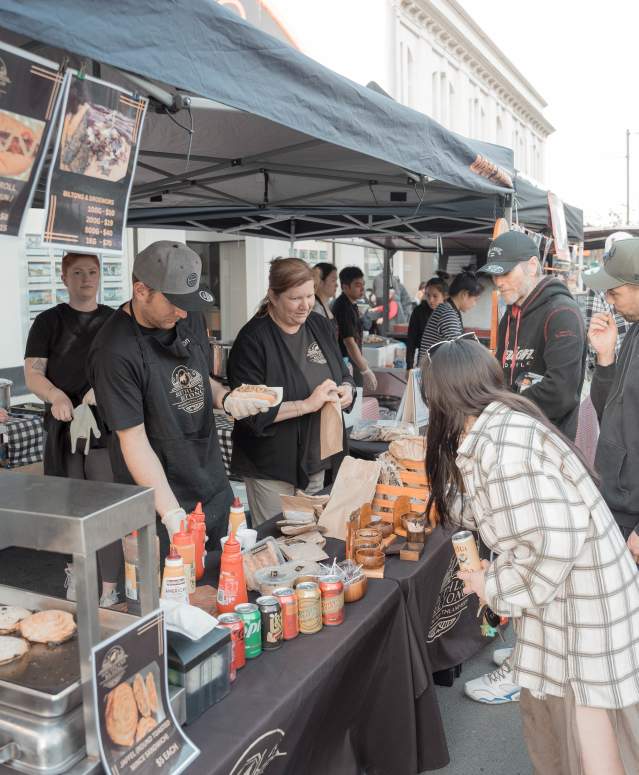Food & Beverage Management
Food safety regulations play an important role in safeguarding public health when it comes to the sale of food and beverages.
The Food Act (2014) outlines the requirements for any business that sells food products in New Zealand. The Ministry for Primary Industries (MPI) is responsible for enacting this legislation and providing the framework for compliance.
In the context of event management, it sometimes makes good sense to outsource the provision of food and beverages at your event to catering companies, mobile food vendors or other businesses that are already set up with food safety registrations and food plans in place. In these cases, food and beverage contractors should provide a certificate of registration under the Food Act to show that they have undergone the required scrutiny to their food preparation, handling, storage, and service practices.
Tips:
Food safety registration process
If you wish to sell food and beverages at your event, you will most likely need to register with either your local council or MPI and have a Food Control Plan (FCP) or National Programme (NP) in place to ensure that food safety regulations are adhered to.
- The MPI My Food Rules tool helps to determine which legislation you should operate under, who to register with, and the plan or programme to use.
- Other resources provided by MPI for new food business, including the free Notebook for Businesses Making and Selling Food booklet, can be found here.
- The Food Control Plan or National Programme identified to use once you have gone through the My Food Rules tool can include:
- Template Food Control Plan,
- Custom Food Control Plan,
- National Programme 1-3,
- Or you could be exempt from this requirement.
- Download and/or print out your plan or programme from the My Food Rules tool (available in English and translations for other languages) and provide training for your staff to ensure that the food they prepare and serve is safe and suitable.
- Record-keeping as identified in the various food plans and programmes is an important requirement to ensure traceability in the event of a public health incident.
- Register with either your local council or MPI – the My Food Rules tool will advise which is applicable, and how to go about this.
- The final step in the process is to get your plan or programme checked by an official food safety verifier to ensure it is sufficient and meets food safety regulations. Search here for official food safety verifiers.
Fundraising, community and social events
- MPI has a section on its website for fundraising, community and social events dedicated to guidance, rules, and regulations around safe food handling.
- Food and beverages provided at these types of events may come under the category of ‘low risk’ food activities. In certain cases, this can mean they are exempt from the requirement to operate under a Food Control Plan or National Programme. Examples of exemptions include:
- if you are fundraising and sell food less than 20 times a year (e.g. sausage sizzles, charity bake sales). You don’t need to be raising money for a registered charity to be considered to be fundraising, but it must be for a specific cause.
- you are a club, organisation or society that sells food to members or guests at events or gatherings where the trade in food is not the purpose of the event or gathering.
- Even if you are exempt from a written plan or programme, you must still comply with food safety laws and make sure your food is safe and suitable to eat.
Allergies and dietary restrictions
- You can help to avoid adverse situations at your event by considering any food allergies and dietary requirements your attendees may have.
- Surveying attendees prior to the event allows you to plan your menu accordingly and provide options that cater to everyone.
- Ensure all food products are clearly labelled with their ingredients and any potential allergens.
- Take precautions such as separate cutting boards, utensils, containers and preparation areas, to prevent cross-contamination of foods that may contain allergens.
- Ensure your staff are sufficiently trained in food-handling and can provide informed responses to enquiries from attendees about ingredients and potential allergens.
- Ensure an emergency response plan is in place in case of allergic reactions and include this in your Event Health and Safety plan.
Menu selection
- Providing an appropriate selection of food and beverages for your target audience ensures attendees desires are met, while also increasing the likelihood of sales and reducing food waste.
- Cultural and ethical considerations may need to be made to ensure the food and beverages on offer are appropriate to attendees’ dietary requirements.
- Opting for locally sourced and sustainable ingredients not only supports the local economy but also reduces the carbon footprint of the event.
Packaging
- Food and beverages need to be served to attendees in some form of packaging. This is an expense that must be accounted for, including the management of waste produced.
- Reusable or compostable packaging are the most sustainable options. Learn more about Sustainability.
Suppliers
- Under the Food Act (2014), it is important to ensure your suppliers are also registered and that they have appropriate food safety plans in place, including when food items are in transit.
- Check out our Event Supplier Database if you are looking for local food and beverage suppliers or mobile vendors.
Logistics and timing
- Coordinating the delivery, setup and timing of food and beverage services is essential to ensure smooth operations and avoid long wait times or shortages.
- Forecasting the amounts of ingredients, beverage stock and other food service items you require plays an important role in enabling you to provide a consistent and reliable food and beverage service.
- Remember that wait times and having enough food and drink on hand for the number of people at your event can make a big difference to how your event is perceived by attendees!
Alcohol
- If you intend to serve alcohol at your event, there are further requirements for both food service and beverage provision. Learn more about Alcohol Licensing requirements and other considerations.
Useful Links:
- New Zealand Legislation | Food Act 2014
- Ministry for Primary Industries | My Food Rules tool
- Ministry for Primary Industries | Resources for new food businesses
- Ministry for Primary Industries | The notebook for businesses making and selling food
- Ministry for Primary Industries | Register of food safety verifiers
- Ministry for Primary Industries | Fundraising, community and social event food safety
- Ministry for Primary Industries | Food safety tips for event organisers
- Ministry for Primary Industries | Food safety tips for selling food at occasional events
- Invercargill City Council | Food safety
- Southland District Council | Selling Food
- Gore District Council | Selling Food
Have you considered?
- What food and beverages are suitable for your event’s target audience?
- What precautions are you taking to prevent cross-contamination of foods that may contain allergens?
- How will clean drinking water be stored and delivered to attendees?
- How many toilets will your event need?
- What type of packaging will food and beverages be served in?
- Are you intending to serve alcohol at your event? Learn more about Alcohol Licensing.

